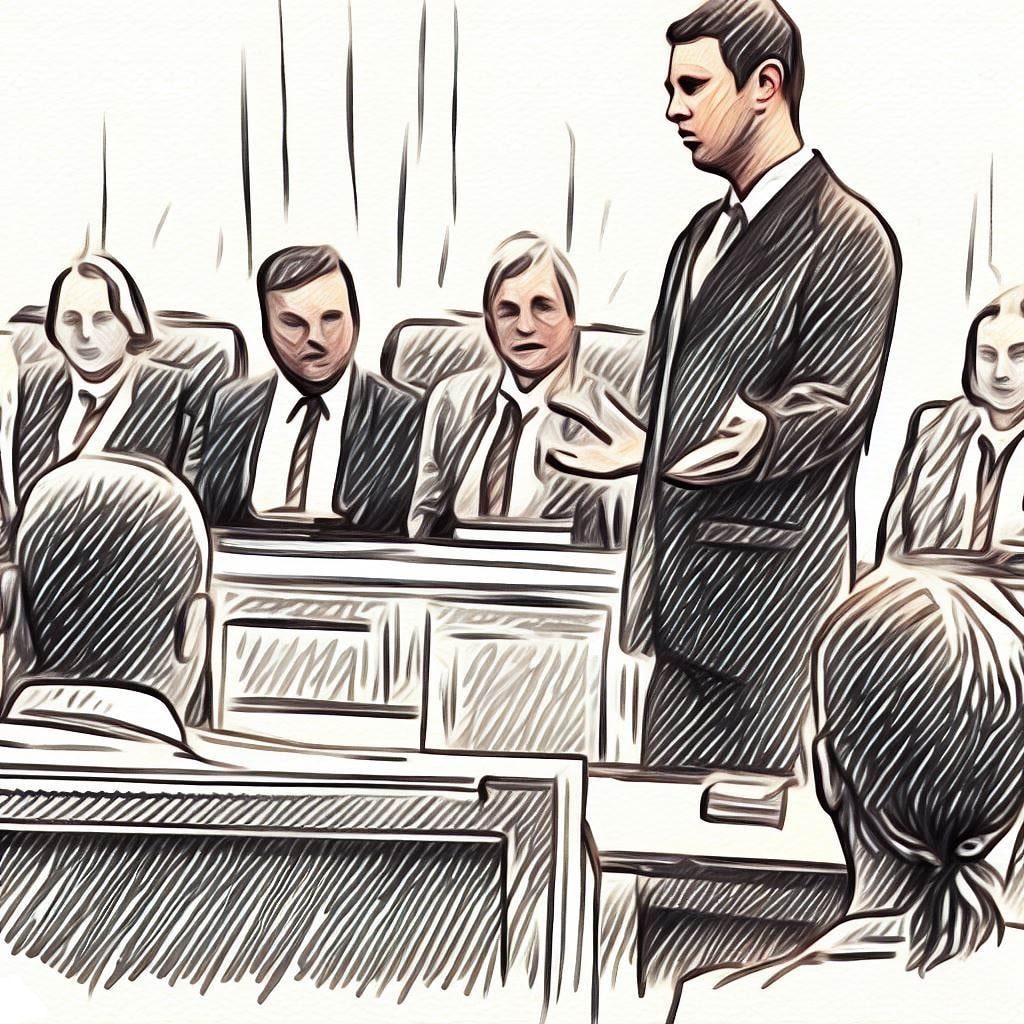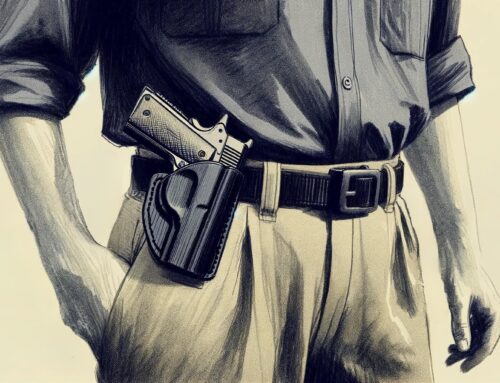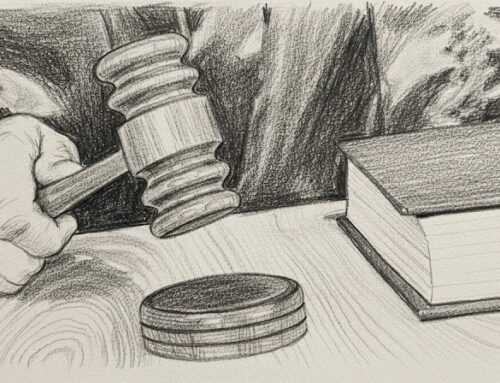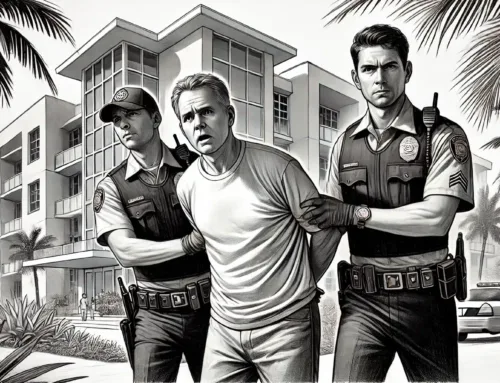The Role of Grand Juries in Florida’s Criminal Justice System
As a criminal defense lawyer practicing in Miami, I am often asked about grand juries and how they operate in Florida. Grand juries play a crucial role in our criminal justice system, yet much of what they do occurs behind closed doors, leading to many misconceptions. In this post, I’ll provide an overview of grand juries in Florida – how they are formed, their powers and duties, the rules governing their procedures, and the protections afforded to those who come before them.
What is a Grand Jury?
A grand jury is a group of citizens tasked with investigating potential criminal conduct and deciding whether criminal charges should be brought. The grand jury serves two key functions—a “sword” to remove criminal threats by bringing charges and a “shield” against unwarranted prosecutions.
Grand juries in Florida typically consist of 15 to 21 people selected from the community. At least 15 members must vote to approve an indictment bringing criminal charges. Grand juries operate in secrecy under the supervision of the circuit court and work closely with prosecutors to gather evidence through subpoenas, witnesses, and documents. Their investigations can cover any criminal offense triable within their county.
Formation of a Grand Jury
Grand jurors in Florida are selected randomly using a 4-step process:
- The court clerk prepares a list of randomly selected, qualified prospective jurors.
- The chief judge selects prospective grand jurors from this list for each county.
- These final lists are submitted to the state court administrator.
- When a grand jury is needed, the presiding judge randomly selects members from the list to impanel the grand jury.
This selection process aims to produce an impartial grand jury representing a cross-section of the community. Discrimination in selecting grand jurors based on race, gender, or other factors is prohibited under the Equal Protection Clause.
Defendants can challenge the composition of a grand jury before it is sworn in by showing a violation of the selection procedures or discrimination. After indictment, they can seek dismissal by proving violations in grand jury selection. But these challenges face strict time limits and burdens of proof.
Powers and Duties of a Grand Jury
Florida grand juries have broad investigative powers but also important duties. Their key powers include:
- Subpoenaing documents and witnesses
- Hearing testimony from witnesses, including targets of investigations
- Inspecting documents and physical evidence
- Issuing indictments formally charging crimes
- Investigating and reporting on the conduct of public officials
A grand jury’s core duty is to investigate any criminal offense within its county that has not already led to formal charges by the state attorney. The grand jury must inquire into the matter and can charge a crime by issuing an indictment if supported by the evidence.
A grand jury indictment is mandatory for capital offenses punishable by death before prosecution can proceed. But for non-capital felonies, the state attorney can file charges directly by information rather than going through a grand jury.
Grand juries also have the power to investigate official misconduct by public officers and bodies and issue reports or recommendations. However, reports relating to private citizens face strict rules limiting prejudicial content.
Rules Governing Grand Jury Procedures
Grand jury proceedings are governed by strict rules to protect their integrity:
- Only authorized persons like the state attorney and the witness testifying may be present. Even the accused and their lawyer are excluded.
- Testimony and evidence presented to a grand jury is secret. This prevents targets from being tipped off and encourages witness cooperation.
- Witnesses must testify under oath. If a witness’s testimony could incriminate them, they can invoke the Fifth Amendment right against self-incrimination to refuse to answer specific questions.
- The state attorney assists the grand jury’s investigation but cannot be present during deliberations and voting.
- Grand jurors and others must keep proceedings confidential even after the investigation ends. Unauthorized disclosures can be punished as contempt of court or a criminal offense.
- Courts cannot inquire into the adequacy of evidence before a grand jury. Challenges are limited to procedural violations.
These rules aim to protect the grand jury’s independence and integrity while allowing effective investigation of criminal activity. Defendants have limited rights during the process but receive stronger protections if charges are filed.
Protections for Grand Jury Witnesses
Witnesses who testify before a grand jury receive certain protections:
- A witness can have counsel present to advise them while testifying, but the lawyer cannot address the grand jury or disrupt the proceedings.
- Testimony under subpoena provides automatic use immunity. It cannot be used directly against the witness in a later criminal prosecution.
- But immunity does not apply to perjury prosecutions for false testimony before the grand jury.
- Invoking the right to remain silent is not permitted for subpoenaed witnesses. Refusal to testify can lead to contempt charges.
- Witnesses cannot be detained prior to testifying solely due to a grand jury subpoena.
While powerful, Florida grand juries operate under constraints and judicial oversight to prevent abuse. Their broad investigative authority serves the public interest when exercised responsibly. While shrouded in secrecy, their pivotal role in the criminal process commands respect.
Contact an Experienced Defense Attorney
Those under grand jury investigation or called to testify deserve experienced legal counsel to guide them through the process and protect their rights. As a Miami criminal defense lawyer, I regularly help clients navigate grand jury proceedings. If you have any questions about grand juries in Florida or need advice regarding an ongoing investigation, I encourage you to contact me for a confidential consultation.
CALL US for a FREE CONFIDENTIAL CONSULTATION at (305) 538-4545, or take a moment to fill out our secure intake form.* The additional information you provide will greatly assist us in responding to your inquiry.
*Due to the large number of people who contact our law office requesting our assistance, it is strongly suggested that you take the time to provide us with specific details regarding your case by filling out our confidential and secure intake form. The additional details you provide will greatly assist us in responding to your inquiry promptly and appropriately.
ALWAYS INVESTIGATE A CRIMINAL DEFENSE ATTORNEY’S QUALIFICATIONS AND EXPERIENCE BEFORE MAKING A DECISION ON HIRING A LAWYER FOR YOUR CRIMINAL CASE IN MIAMI-DADE COUNTY








